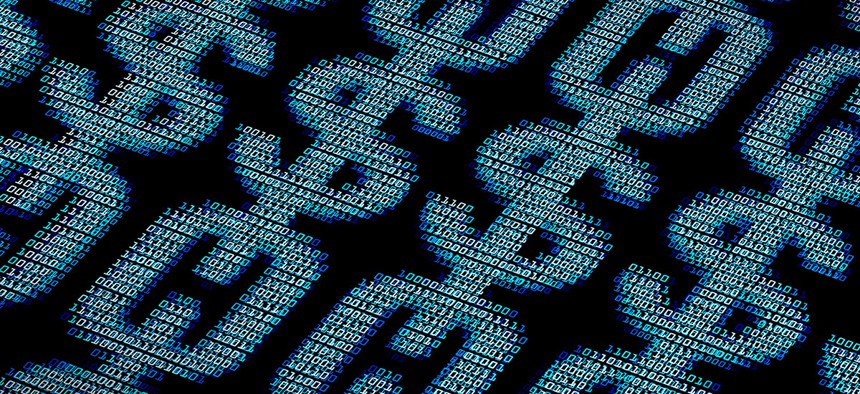Federal Agencies Flirt with Blockchain

enzozo/Shutterstock.com
Agencies brainstormed at least 200 potential federal use cases.
The decentralized record-keeping system that tracks bitcoin and other digital currencies might have a role in the federal government, but it's not yet clear what that role is.
Agencies are showing early interest in blockchain technology. The Homeland Security Department awarded BlockCypher—which operates such databases—a Small Business Innovation Research grant last year to demonstrate how blockchain can stymie hackers. The General Services Administration is investigating using blockchain as part of a broader plan to automate the bid-review process on certain contracts. The Health and Human Services Department recently hosted a code-a-thon in which developers built blockchain-based tracking systems for electronic medical records.
GSA recently created a blockchain-themed community of practice, an effort to connect people across agencies who are interested in specific technologies. Earlier this month about 100 federal managers attended GSA's blockchain forum, contributing to a repository of about 200 potential use cases in government.
» Get the best federal technology news and ideas delivered right to your inbox. Sign up here.
Those use cases include systems that might use blockchain to track the "appropriation of federal funds, which does have a trust issue in a huge way," to the State Department investigating how to protect the integrity of passports and visas, GSA's Emerging Citizen Technology Office lead Justin Herman said at a blockchain conference in Washington Friday.
But the discussions are early stage, and it's too early to tell which blockchain strategies will take off. “Most of these probably won’t work,” Herman said at the conference. He told Nextgov that GSA is not advocating for the technology, but is researching blockchain in response to interest from federal agency leadership.
Next month GSA is launching an e-mail listserv for federal employees hoping to discuss potential blockchain applications at their agencies. That thread will also be available to the public.
Despite apparent enthusiasm for blockchain from agency management, at least one blockchain expert warned against using the technology just because it's buzzy.
"If you're not doing something that involves accumulating and sharing and disseminating data that everyone needs to agree on, you don't need this at all," Peter Van Valkenburgh, research director of the cryptocurrency and decentralized technology advocacy group the Coin Center, said at the conference. Decentralized ledger systems like blockchain help disparate groups who don't have any reason to trust each other—like the holders of cryptocurrency—make transactions. The systems are "still very new" and "coded from scratch often" because few people know how to build them, he explained.
If agencies simply need a way to digitize documents, "use Oracle," he said. "It’s not going to be sexy, you might not get as much funding from your higher ups because it doesn't have the word 'blockchain' on it, but you’re going to be much better off in the long run. ... When your thing gets hacked because you built it out of string and chewing gum and you didn't entirely know what you were doing ... there's going to be a rude awakening."
NEXT STORY: NASA Robot Trains for the Dark Side of the Moon





